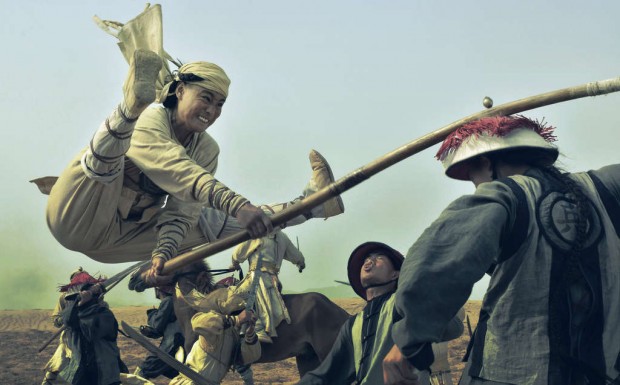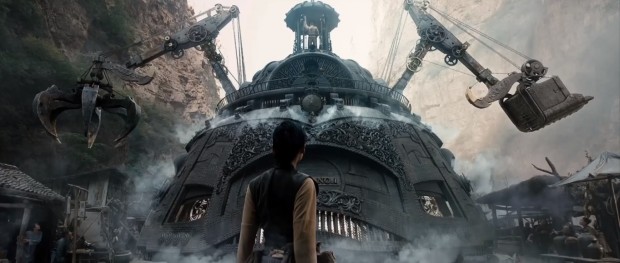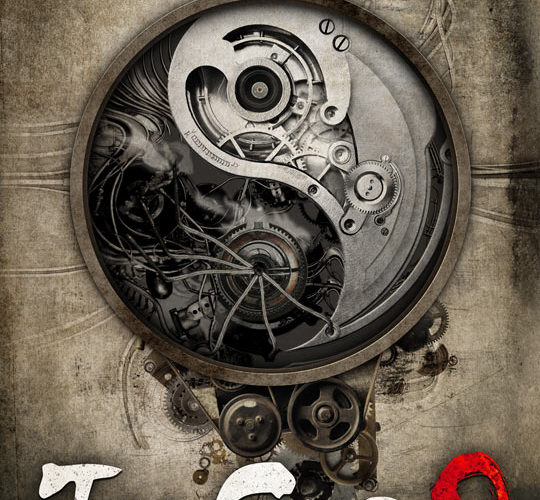A film like Tai Chi Zero makes one wonder how far a wink and a smile can take you. Within 94 minutes one hurtles from irrational fast-paced action to droll drama and back, with this helter skelter nature becoming both its charm and pitfall. With heavy influences from videogames and cartoons, you can sense director Stephen Fung’s attempt to break up the action into easily digestible slices. While those portions are consistently entertaining, the narrative that ties it all together is hit or miss.

Set in an alternate history China (steampunk!) during the Qing dynasty, we follow a mysterious young warrior named Yang Lu Chan (Yuan Xiaochao). He is aided by a birthmark resembling a horn that when pushed turns him into a possessed one-man blitzkrieg. However, it also drains his life force. So he seeks out Chen-style kung fu which is supposed to provide a remedy. It is in the quaint village of Chen, where everyone seems to be a kung fu master, that the rest of the film takes place.
The silly tone is bolstered by video game effects like a scrolling layout of the village with hovering names over each and the introduction of all the major and minor characters, complete with the actors’ names and their most famous role and the non-actors’ accomplishments. The touches like the introduction of each character and even having a versus animation can’t help but draw comparisons to Scott Pilgrim Vs. the World. Oddly, the plot often takes a Western vs. Eastern cultural clash to a heightened degree. For those excited about the steampunk aspect, temper your expectations as there are just two machines that utilize the tech. Thankfully the second beast is quite interesting and plays a major role in the finale.

Though one major gripe comes with the subtitles, as conversations can sometimes blaze right through before you even have a chance to catch up. With this being the first part of a planned trilogy (the second film is due to arrive in the US early next year) this means not only is the ending left open, but various storylines fail to come to a resolution. This factor ultimately makes it hard to judge the quality of those narratives, but even though arcs are left incomplete, I am intrigued enough to ponder the revelations.
Sometimes the charm isn’t enough to keep Tai Chi Zero afloat, but the comical and over-the-top presentation help the film from being bogged down for too long. Meanwhile the Western and Eastern cultural clash becomes readily apparent halfway through, but unfortunately doesn’t tie up in a cohesive manner. Although some of these story elements are silly beyond a doubt, Tai Chi Zero still manages to ride along on its inventive visuals.
Tai Chi Zero is now in limited release.

